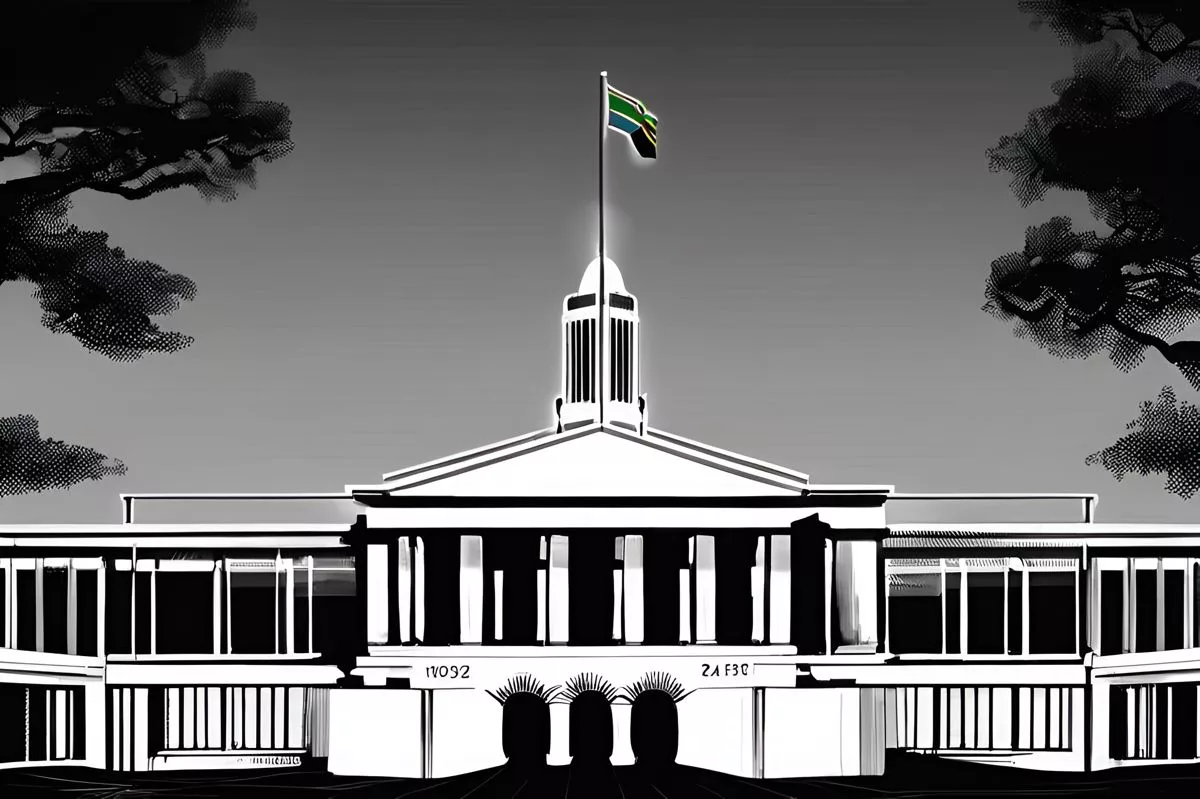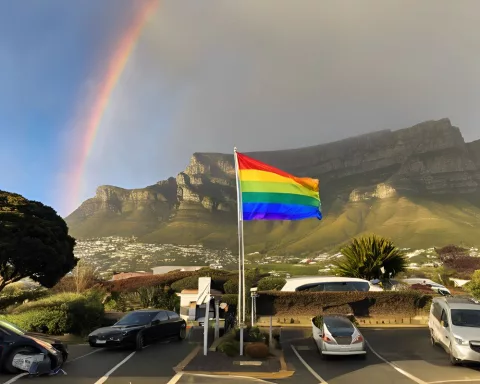Deputy President Mashatile spoke at the South Africa Legislative Sector International Oversight Summit, praising the country’s progress in democracy and legislative accomplishments like the Electricity Regulation Amendment Bill and the Domestic Violence Act. He emphasized the importance of accountability, integrity, ethics, and transparency for the legislative sector’s role in improving the lives of South Africans. Mashatile also highlighted the upcoming National General Elections and the government’s commitment to progress and reform.
Reflections on the South Africa Legislative Sector International Oversight Summit: Assessing Progress and Future Hurdles
Deputy President Shipokosa Paulus Mashatile delivered a keynote address at the South Africa Legislative Sector International Oversight Summit, highlighting the milestones of South Africa’s three decades of democracy and significant legislative accomplishments. Mashatile stressed the need for accountability, ethics, integrity, and transparency as pillars for the legislative sector’s role in enhancing South African lives and evaluating noteworthy legislative accomplishments like the Electricity Regulation Amendment Bill, the innovative Gender Equality Act, and the Domestic Violence Act. Looking to the future, Mashatile acknowledged the upcoming National General Elections marking the shift from the sixth to the seventh Parliament.
Significant Discussions in the Political Domain
In Cape Town’s Century City Conference Centre, an essential dialogue concerning the transformation of the legislature across Africa took place. Esteemed attendees, from the Speaker of the National Assembly of South Africa, Honourable Mapisa-Nqakula, to Representatives of the EU Delegation to SA and Civil Society Representatives, convened for the South Africa Legislative Sector International Oversight Summit. Deputy President Shipokosa Paulus Mashatile delivered a moving keynote address that acknowledged the advancements of democratic governance in South Africa over the last three decades while also examining the forthcoming challenges and responsibilities.
Mashatile initiated his address with a note of appreciation, extending his thanks to the Legislative Sector South Africa and its associates for arranging this crucial Summit. Recognizing the contributions of SADC Parliaments and the European Union in reinforcing the democratic agenda in Africa, he greeted their persistent involvement.
His discourse followed the milestone of South Africa’s three decades of democracy, contrasted against the suppressive apartheid regime that preceded it. The Deputy President accentuated the progress that has been achieved and credited it to the people-oriented government that values citizens as essential contributors to policymaking and legislative processes.
South Africa’s International Influence and Legislative Successes
Mashatile’s talk also highlighted South Africa’s global influence. He underscored the country’s firm stand on justice, as evidenced by their support for the Palestinian people. Under President Cyril Ramaphosa’s leadership, South Africa questioned the Israeli government’s actions against the Palestinians in the International Court of Justice, mirroring the country’s commitment to advocating for the vulnerable and marginalized.
Pondering the significance of a sturdy legislature, Mashatile stressed the need for accountability, ethics, integrity, and transparency as pillars for the legislative sector’s role in enhancing South African lives. He postulated that without these principles, the sustainable human development agenda could not be fully actualized.
An essential aspect of his address was the highlighting of executive accountability’s importance. Mashatile contended that a democracy’s fundamental test lies in the Parliament’s ability to keep the executive accountable through consistent oversight. The Deputy President acknowledged the problems South Africa has encountered, particularly in the realm of corruption, state power misuse, and maladministration. However, he also underscored the country’s pledge to confront these issues, referring to the establishment of the Judicial Commission of Inquiry investigating state capture allegations.
Mashatile also evaluated noteworthy legislative accomplishments, from the Electricity Regulation Amendment Bill to the innovative Gender Equality Act and the Domestic Violence Act. These laws, he pointed out, have significantly represented the South African people, furthered gender equality, and tackled gender-based violence.
Looking Forward: Future Commitments and Challenges
As the Government Business Leader, Mashatile emphasized his role in tracking the Executive’s progress and Parliament’s implementation of the legislative programme. He reported that, since his appointment in 2023, several priority legislative proposals have been submitted for the Cabinet’s approval, indicating the government’s commitment to progress and reform.
Looking to the future, Mashatile acknowledged the upcoming National General Elections marking the shift from the sixth to the seventh Parliament. His trust in the Independent Electoral Commission’s capacity to conduct free and fair elections was steadfast, quelling any doubts about the legitimacy of South Africa’s democracy.
In his concluding remarks, the Deputy President reiterated the significance of a people-focused democracy accountable to its citizens. Referencing the words of President Nelson Mandela, he envisioned a future where collective efforts would further fortify South Africa’s democracy in the pursuit of social justice. As the Summit moves forward, these words act as a beacon for all attendees, symbolizing the persistent spirit of progress and commitment to the South African people’s betterment.
What was the South Africa Legislative Sector International Oversight Summit?
The South Africa Legislative Sector International Oversight Summit was a conference held in Cape Town’s Century City Conference Centre to discuss the transformation of the legislature across Africa. Esteemed attendees from political leaders to civil society representatives convened at the summit to discuss the future of South Africa’s democracy and legislative sector.
What did Deputy President Mashatile highlight in his keynote address?
Deputy President Mashatile highlighted the milestones of South Africa’s three decades of democracy and significant legislative accomplishments like the Electricity Regulation Amendment Bill, the Gender Equality Act, and the Domestic Violence Act. He emphasized the importance of accountability, ethics, integrity, and transparency as pillars for the legislative sector’s role in enhancing South African lives and evaluating legislative accomplishments.
What is South Africa’s global influence according to Mashatile’s talk?
Mashatile underscored South Africa’s global influence and its commitment to advocating for the vulnerable and marginalized, specifically citing their support for the Palestinian people and their questioning of the Israeli government’s actions against the Palestinians in the International Court of Justice.
What are the challenges South Africa has encountered in the realm of corruption, state power misuse, and maladministration?
The Deputy President acknowledged the problems South Africa has encountered, particularly in the realm of corruption, state power misuse, and maladministration. However, he also underscored the country’s pledge to confront these issues, referring to the establishment of the Judicial Commission of Inquiry investigating state capture allegations.
What is Deputy President Mashatile’s role as the Government Business Leader?
As the Government Business Leader, Mashatile emphasized his role in tracking the Executive’s progress and Parliament’s implementation of the legislative program. He reported that several priority legislative proposals have been submitted for the Cabinet’s approval, indicating the government’s commitment to progress and reform.
What did Deputy President Mashatile envision for the future of South Africa’s democracy?
In his concluding remarks, the Deputy President envisioned a future where collective efforts would further fortify South Africa’s democracy in the pursuit of social justice. He reiterated the significance of a people-focused democracy accountable to its citizens and encouraged attendees to continue the persistent spirit of progress and commitment to the South African people’s betterment.










